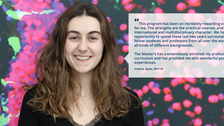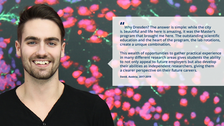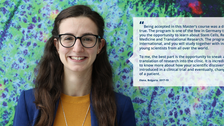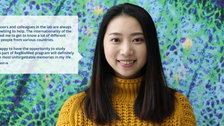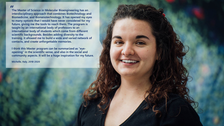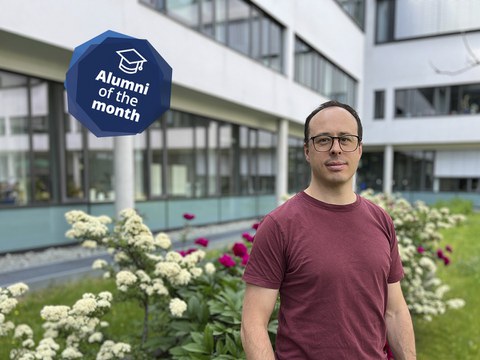Center for Molecular and Cellular Bioengineering (CMCB)
Studiengänge im Überblick
Für eine Beratung zu fachspezifischen Fragen können Sie sich immer - unabhängig von der heutigen Veranstaltung - an unsere Studienfachberatung wenden:
Prof. Konstantinos Anastassiadis
Neugierig geworden? Noch mehr Infos zum Studiengang im Studieninformationssystem (SINS)
Für eine Beratung zu fachspezifischen Fragen können Sie sich immer - unabhängig von der heutigen Veranstaltung - an unsere Studienfachberatung wenden:
Prof. Dr. Michael Schlierf
Neugierig geworden? Noch mehr Infos zum Studiengang im Studieninformationssystem (SINS)
Für eine Beratung zu fachspezifischen Fragen können Sie sich immer - unabhängig von der heutigen Veranstaltung - an unsere Studienfachberatung wenden:
Prof. Marius Ader
Neugierig geworden? Noch mehr Infos zum Studiengang im Studieninformationssystem (SINS)
Programm
13 Uhr – Vorstellung der 3 Masterstudiengänge des Center for Molecular and Cellular Bioengineering
Der Studiendekan, das Studienbüro und der Fachschaftsrat des CMCB stellen die drei englischsprachigen Masterstudiengänge »Molecular Bioengineering«, »Physics of Life« und »Regenerative Biology and Medicine« vor.
Vortragssprache: Englisch
Zoom-Link
Vorstellung des CMCB
Das CMCB konzentriert sich als Zentrale Wissenschaftliche Einrichtung der TU Dresden auf interdisziplinäre Forschung und Lehre im Bereich der Lebenswissenschaften. Es vereint unter seinem Dach die Institute B CUBE, BIOTEC und CRTD und ist sowohl mit den Fakultäten der TU Dresden als auch mit externen Forschungsinstituten eng vernetzt. Ziel des CMCB ist es, Synergien zwischen diesen Einrichtungen zu schaffen, um die international ausgerichtete Spitzenforschung und das innovative Lehrprogramm weiter zu stärken. Dem Campus der TU Dresden sowie den Partner:innen der Allianz DRESDEN-concept werden modernste Forschungseinrichtungen und -technologien über die CMCB Technologieplattform zur Verfügung gestellt. Neue Erkenntnisse werden hier für eine mögliche kommerzielle Nutzung weiterentwickelt. Die CMCB-Forschungsgruppen werden durch zentrale Serviceeinheiten unterstützt, die auch als Schnittstelle zur zentralen Verwaltung der TU Dresden fungieren.
Study Life Sciences at CMCB © TUD/Biermann-Jung Kommunikation & Film
Alumni
Die Absolvent:innen des CMCB sind in einer Vielzahl von Bereichen tätig. Es gibt eine hohe Quote an Absolvent:innen, die an einem Programm für Doktorierende teilnehmen (ca 80-90%). Andere arbeiten, mit und ohne Doktortitel, in Bereichen der Forschung (Wissenschaft und Industrie), in der Koordination klinischer Studien, in der Wissenschaftskommunikation, im Business Development uvm.
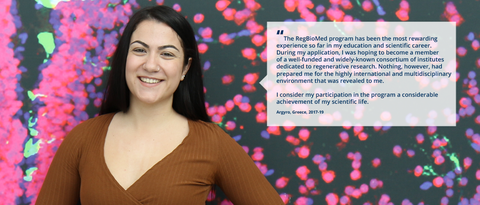
© CRTD
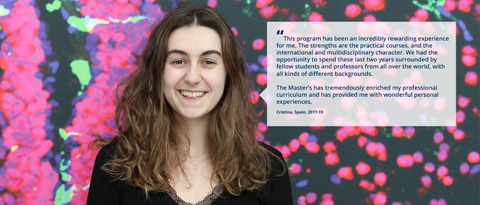
© CRTD
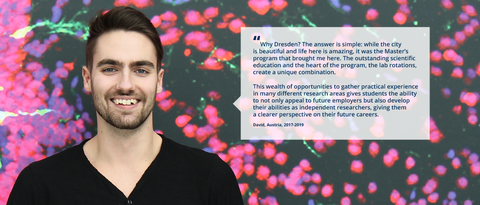
© CRTD
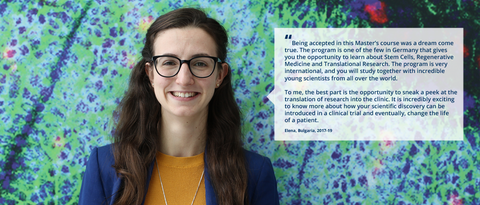
© CRTD
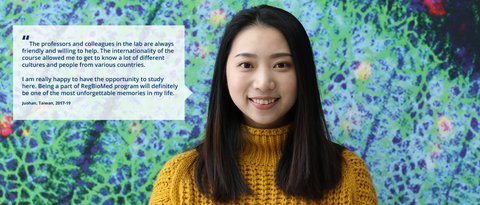
© CRTD
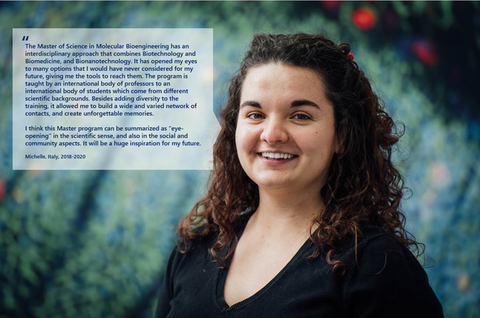
© TUD/Magdalena Gonciarz
Machen Sie sich klar, was Ihre Stärken sind! Dr. Matthäus Mittasch studierte Nanobiophysics, den Vorgänger des heutigen Studiengangs Physics of Life. Heute forscht er an „small molecule drugs“ – neuartigen Medikamenten auf der Basis biomolekularer Kondensate zur Behandlung von Zivilisationskrankheiten. mehr erfahren
Link Bereich
Studium ist mehr als Stundenplan, Hörsaal und Bücher. Daher haben wir eine paar weitere nützliche Links zusammengestellt. Ob im Hörsaalzentrum, im Labor oder in der Mensa; schon bald werden Sie sich hier gut auskennen und dann auch die Zeit finden, Dresden und seine Umgebung für sich zu entdecken und zu genießen.


